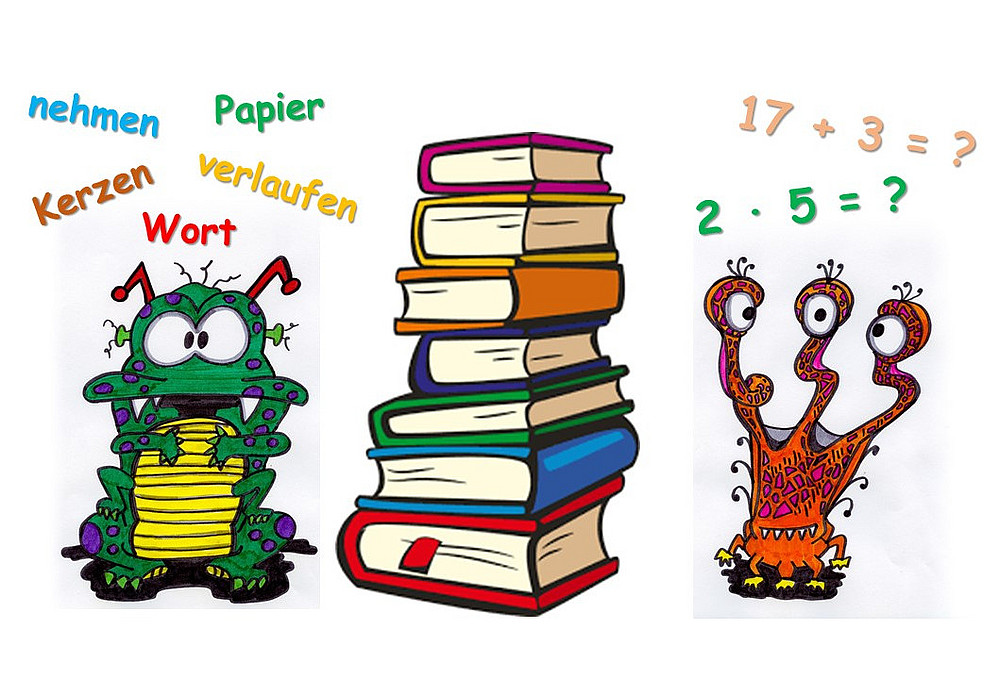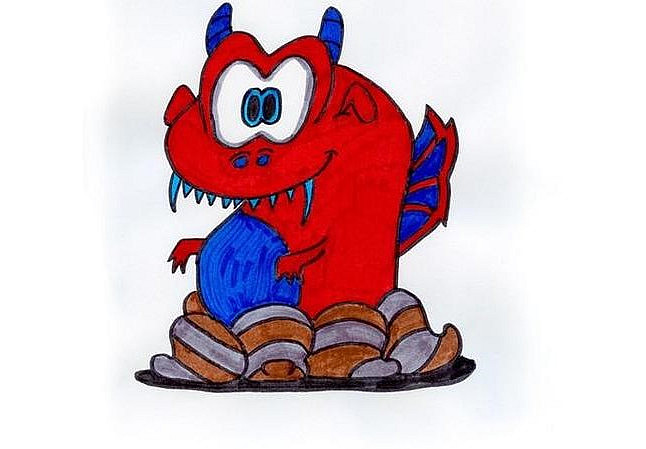Mechanisms of orthographic and arithmetic learning
Monsters and more

Scientific background
Reading, spelling and arithmetic are dynamic learning processes that are based on the acquisition and retrieval of verbal knowledge stored in long-term memory (verbal learning). Strong correlations have been demonstrated with regard to these three skills. Studies to date have mostly focused on individual differences in acquired skills and have thus provided a primarily static perspective. A unified framework regarding the common neurocognitive mechanisms of verbal learning in different skill areas is therefore not yet available. In addition, reading and spelling strategies depend on the characteristics of the orthographic system, which in turn can affect the interplay of written language processes and arithmetic.
Research questions
The current project investigates the association of reading, spelling and arithmetic with verbal learning mechanisms. The association of the three academic skills with domain-general and domain-specific cognitive dimensions that predict orthographic and arithmetic fact learning will be examined across orthography in typically developing German- and Italian-speaking children. Furthermore, this project attempts to get to the bottom of the neurofunctional basis of verbal learning shared by the orthographic and arithmetic domains.


Methods
The project is implemented in a cross-sectional design with two strands of research. The first strand focuses on the link between verbal learning mechanisms, cognitive dimensions and the three academic skills. Learning tasks for the acquisition and recall of orthographic and arithmetic factual knowledge is implemented with 2nd and 3rd grade children. For the language comparison, two studies are conducted, one in Graz (Austria) and one in Rome (Italy). The second line of research consists of three experiments with functional magnetic resonance imaging (fMRI) with adults. In particular, it aims to unravel common and specific neural networks involved in the learning and recall of orthographic and arithmetic knowledge. A detailed description of the functional imaging study can be found in the figure.
Project leader: Mag. Dr.rer.nat. Chiara Banfi, University of Graz
Cooperation partner: Prof. Pierluigi Zoccolotti, Sapienza University, Rome
Duration: 05.09.2022 - 04.09.2025